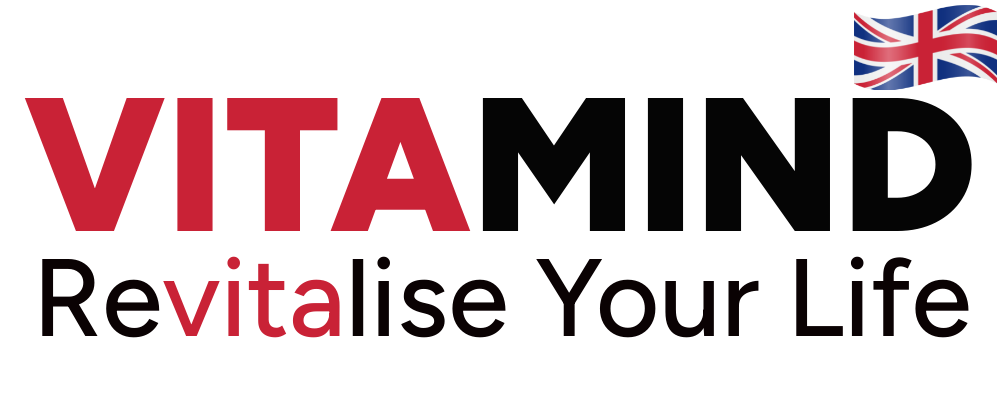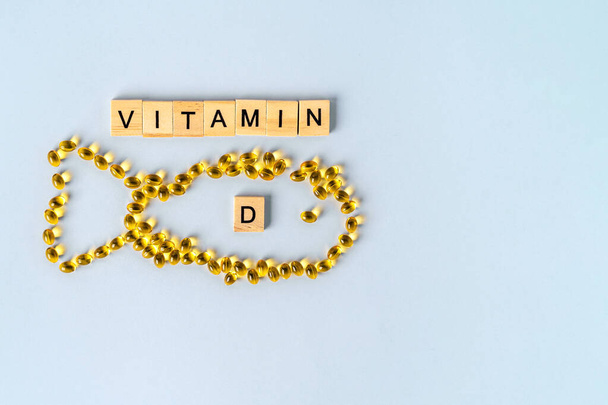Can you get vitamin D from food? This is a common question nutritionists answer every day. Yes, you can get vitamin D from food, although it is relatively rare to obtain enough vitamin В solely through dietary sources.
Quick Overview
Some foods naturally contain vitamin D, while others are fortified with it. Here are some examples if you are worried whether can you get vitamin D from food:
1. Fatty fish such as salmon, mackerel, and tuna are excellent sources of vitamin D.
2. Egg yolks also contain vitamin D.
3. Some types of mushrooms, such as shiitake mushrooms, provide small amounts of vitamin D.
4. Fortified foods like milk, orange juice, yogurt, and breakfast cereals often have added vitamin D to help increase intake, especially in populations with limited sun exposure.
However, the body’s primary source of vitamin D is through exposure to sunlight. When the skin is exposed to sunlight, it produces vitamin D naturally. Therefore, spending time outdoors in sunlight is an important way to ensure adequate vitamin D levels.
If you’re concerned can you get vitamin D from food or about vitamin D deficiency, speak with a healthcare professional about the best ways to meet your needs through diet, supplements, and sun exposure.
RELATED: Vitamin D 20000 iu – How to Take Vitamin D?
Where can I get vitamin D from food?
You can obtain vitamin D from various food sources, although it can be challenging to get enough solely from diet. Here are some foods that contain vitamin D:
1. Fatty fish: Salmon, trout, mackerel, and tuna are excellent sources of vitamin D.
2. Cod liver oil: This oil is a rich source of vitamin D and is often available in supplement form.
3. Egg yolks: Eggs contain small amounts of vitamin D, with the majority found in the yolk.
4. Fortified foods: Many foods are fortified with vitamin D, including milk, orange juice, yogurt, breakfast cereals, and plant-based milk alternatives like soy or almond milk.
While these foods can contribute to your vitamin D intake, the body’s primary source of vitamin D is sunlight exposure. When your skin is exposed to sunlight, it produces vitamin D naturally. Therefore, spending time outdoors and allowing your skin to be exposed to sunlight, particularly during the sunniest parts of the day, can help maintain adequate vitamin D levels. Still, can you get vitamin D from food?
Getting vitamin D from fish
Fish, particularly fatty fish, is a great source of vitamin D. Some types of fish that are especially rich in vitamin D include:
- Salmon: Both wild-caught and farmed salmon are excellent sources of vitamin D.
- Mackerel: Mackerel is another fatty fish that provides significant amounts of vitamin D.
- Tuna: Canned tuna, especially when packed in oil, is a good source of vitamin D.
- Sardines: These small fish are not only rich in omega-3 fatty acids but also contain vitamin D.
Incorporating these fish into your diet can help boost your vitamin D intake naturally if you wonder, can you get vitamin D from food. However, it’s important to balance fish consumption with considerations such as mercury content and sustainability.
Additionally, if you’re unable to get enough vitamin D from food alone, consider other sources such as sunlight exposure and supplements to meet your nutritional needs.
RELATED: Liquid Vitamin D: 7 Benefits for Adults
Getting vitamin D from mushrooms
Can you get vitamin D from food such as mushrooms? Yes, mushrooms can indeed be a source of vitamin D, particularly when they are exposed to sunlight or ultraviolet (UV) light during growth or processing. Here’s how it works:
Sun-exposed mushrooms and vitamin D
Certain types of mushrooms, such as shiitake mushrooms, have the ability to produce vitamin D when exposed to sunlight or UV light. When mushrooms are exposed to sunlight, they synthesise vitamin D2, also known as ergosterol, which is converted into vitamin D2 when consumed.
Fortified mushrooms
Some commercially available mushrooms are exposed to UV light to increase their vitamin D content. These mushrooms are typically labeled as “vitamin D-enhanced” or “vitamin D-fortified” and can provide a significant amount of vitamin D2.
While mushrooms can contribute to your vitamin D intake, it’s important to note that they may not be as potent a source of vitamin D as fatty fish or fortified foods. Additionally, the vitamin D content of mushrooms can vary based on factors such as the amount of sunlight exposure and the specific mushroom variety.
RELATED: Vitamin D Deficiency: Digestive Problems
Incorporating sun-exposed or fortified mushrooms into your diet can be a valuable way to increase your vitamin D intake, particularly for individuals following vegetarian or vegan diets. However, it’s essential to consider other sources of vitamin D, such as fortified foods and sunlight exposure, to ensure adequate levels of this essential nutrient.
Can you get vitamin D from food? If you have concerns about your vitamin D intake, consult with a healthcare professional for personalised guidance and recommendations.
Getting vitamin D from fortified foods
Fortified foods are products that have nutrients added to them that don’t naturally occur in the food. Many foods are fortified with vitamin D to help people increase their intake of this important nutrient, especially in regions where sunlight exposure is limited.
So can you get vitamin D from food that has been fortified? Here are some common examples of foods that are often fortified with vitamin D:
- Milk: Cow’s milk is commonly fortified with vitamin D to help increase its nutritional value.
- Orange Juice: Some brands of orange juice are fortified with vitamin D to provide an additional source of the nutrient.
- Yogurt: Certain varieties of yogurt, particularly those labeled as “vitamin D-fortified,” contain added vitamin D to enhance their nutritional profile.
- Breakfast Cereals: Many breakfast cereals, especially those marketed toward children, are fortified with various vitamins and minerals, including vitamin D.
- Plant-Based Milk Alternatives: Some plant-based milk alternatives, such as soy milk, almond milk, and coconut milk, are fortified with vitamin D to make them more nutritionally comparable to cow’s milk.
Incorporating fortified foods into your diet can be a convenient way to increase your vitamin D intake, especially if you have limited sun exposure or dietary restrictions that may impact your ability to obtain vitamin D from natural sources.
However, it’s important to check food labels to ensure that you’re selecting products that are fortified with vitamin D and to be mindful of added sugars and other ingredients. Can I get enough vitamin D from food depends on many other factors. Let’s take a closer look.
RELATED: Liquid Vitamin D: 7 Benefits for Adults
Can I get enough vitamin D from food UK?
In the UK, it can be challenging to obtain enough vitamin D from food alone, especially during the winter months when sunlight exposure is limited. While some foods naturally contain vitamin D and others are fortified with it, it’s often difficult to meet the recommended intake solely through diet. Here are some factors to consider:
Limited food sources
There are only a few foods that naturally contain vitamin D, such as fatty fish (salmon, mackerel, sardines), egg yolks, and mushrooms exposed to sunlight. Additionally, some foods like fortified milk, orange juice, and breakfast cereals contain added vitamin D.
Sunlight exposure
The body produces vitamin D when the skin is exposed to sunlight, specifically UVB rays. However, in the UK, sunlight exposure may be limited, especially during the winter months when the sun’s angle is low, and UVB radiation is reduced. Furthermore, factors such as cloud cover, pollution, and spending more time indoors can further limit vitamin D synthesis.
Vitamin D supplementation
Due to the challenges of obtaining enough vitamin D from food and sunlight alone, many health authorities, including Public Health England (PHE), recommend considering a daily vitamin D supplement during the autumn and winter months. The recommended dosage varies depending on age, lifestyle, and other factors, so it’s essential to follow healthcare guidelines.
While it’s possible to incorporate vitamin D-rich foods into your diet and spend time outdoors when the sun is shining, supplementation may be necessary, especially in regions with limited sunlight exposure like the UK.
If you’re unsure about your vitamin D levels or have specific health concerns, it’s best to consult with a healthcare professional for personalised recommendations tailored to your needs.
RELATED: 30 FAQ about Vitamin D3 and K2
Final thoughts: Can you get vitamin D from food alone?
While it’s possible to obtain some vitamin D from food sources, it’s generally challenging to get enough vitamin D from food alone to meet daily requirements, especially in regions with limited sunlight exposure. Vitamin D is primarily synthesized by the body when the skin is exposed to sunlight, specifically UVB rays.
However, there are a few foods that naturally contain vitamin D, such as fatty fish (salmon, mackerel, sardines), egg yolks, and mushrooms exposed to sunlight. Additionally, some foods like fortified milk, orange juice, and breakfast cereals contain added vitamin D.
Factors such as dietary preferences, limited food sources, and reduced sunlight exposure during certain seasons or in regions with high latitudes can make it difficult to obtain adequate vitamin D solely from food. Therefore, it’s important to consider other sources of vitamin D, such as sunlight exposure and supplementation, to ensure optimal levels.
If you have concerns about your vitamin D intake or are at risk of deficiency, consult with a healthcare professional for personalised recommendations tailored to your individual needs and circumstances.


[…] important for vegans to ensure they get an adequate intake of vitamin D through fortified foods, supplements, and exposure to sunlight. Fortified plant-based milk, orange juice, cereals, and […]